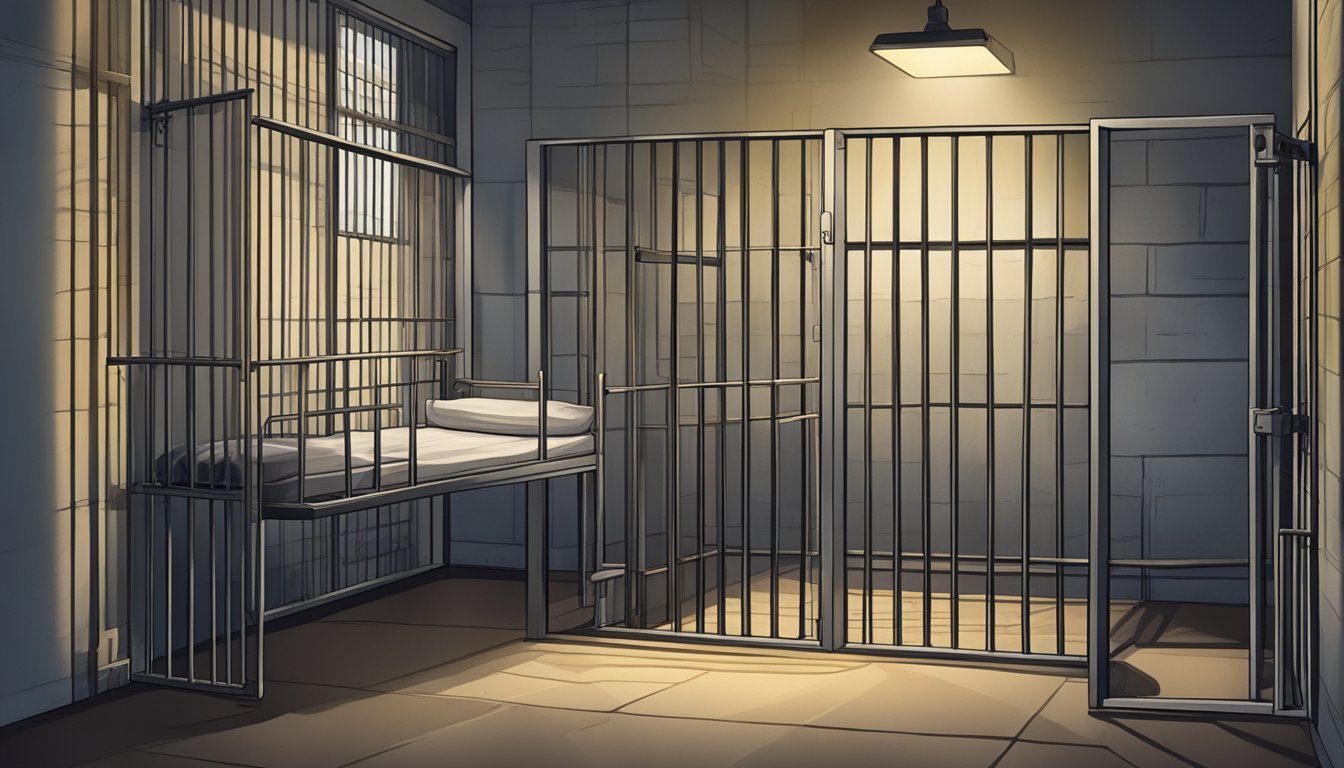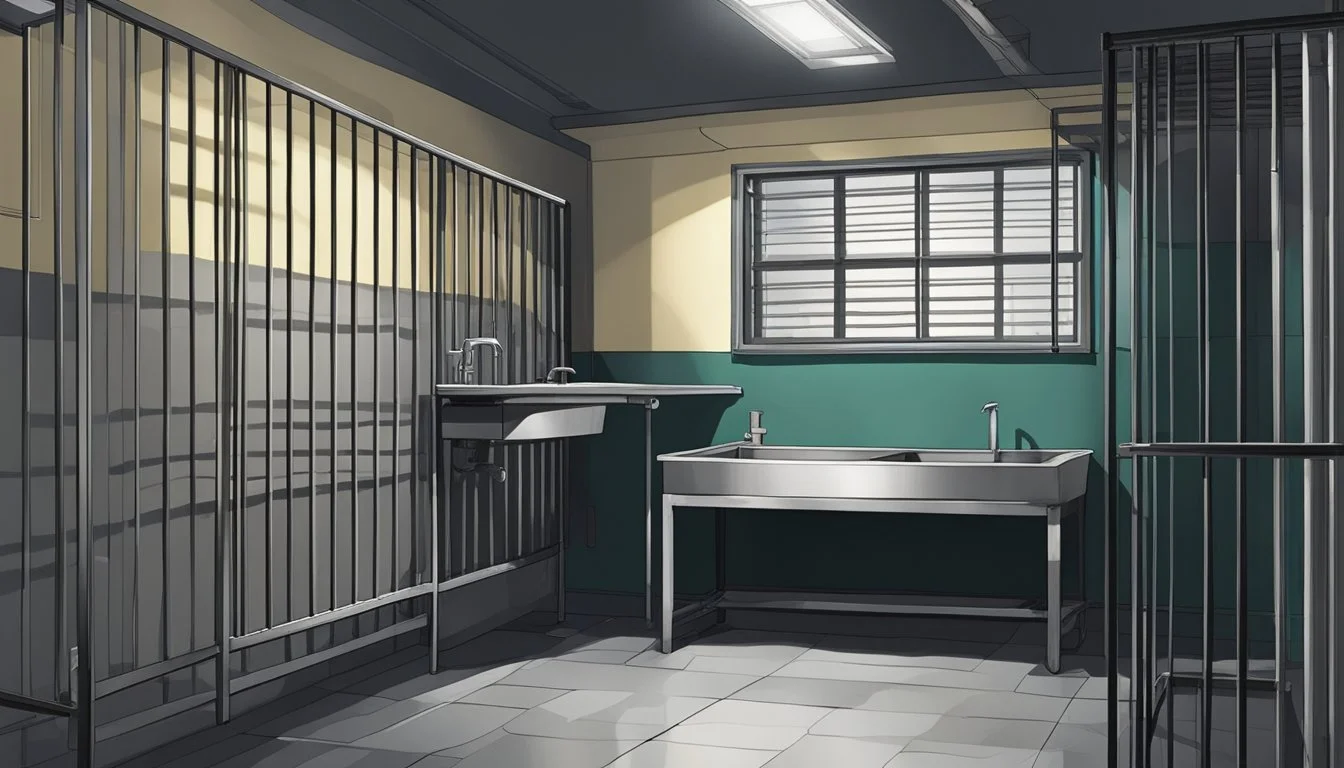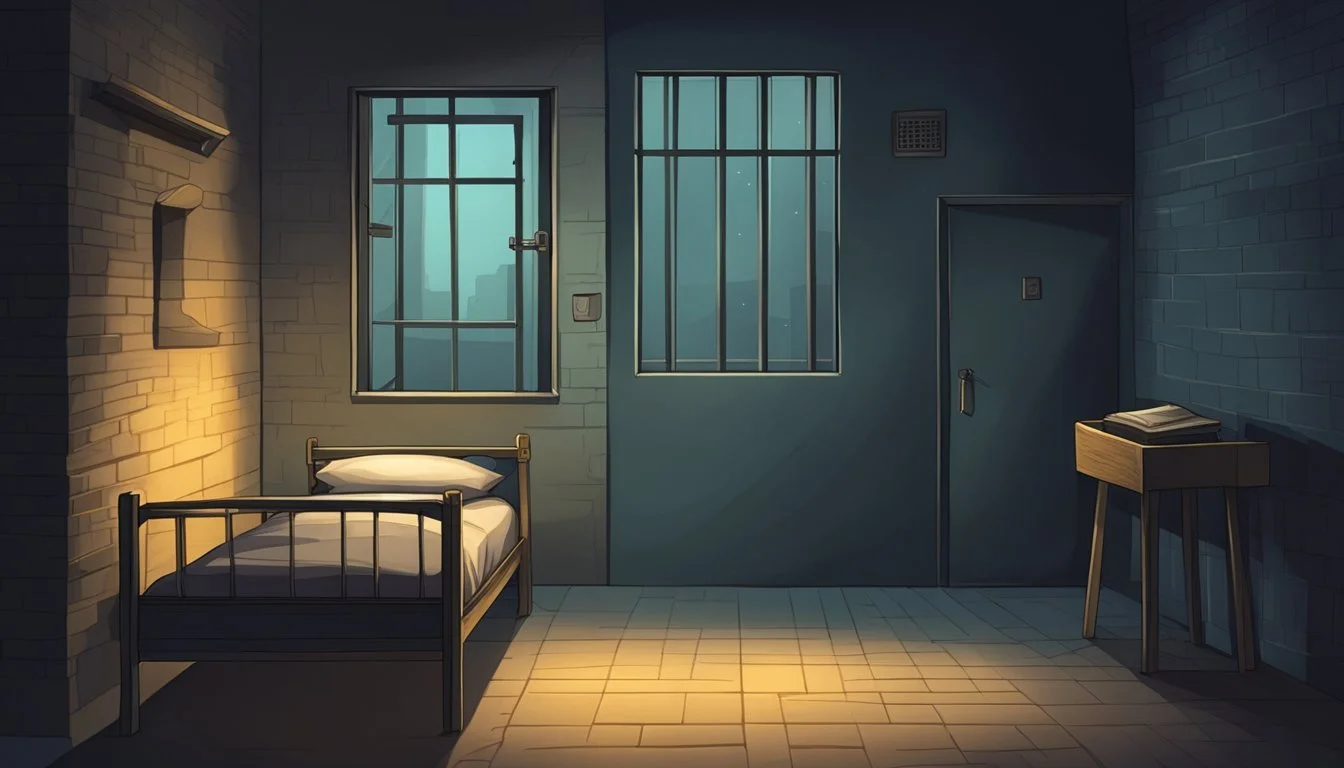Is Darnell Hartsfeld, Tyler Pipe Killer, Still in a Cold Cell?
Latest Update on Convicted Murderer's Incarceration
Darnell Hartsfield, known as the Tyler Pipe Killer, gained notoriety for his involvement in the brutal murders at the Tyler Pipe factory in Texas. His case sparked intense public interest and led to significant changes in industrial safety practices.
As of September 2024, Darnell Hartsfield remains incarcerated in a Texas state prison, serving a life sentence for his role in the murders. The Tyler Pipe case, along with Hartsfield's conviction for the separate KFC murders in Kilgore, Texas, ensured his continued imprisonment.
Documentaries and media coverage have kept the Tyler Pipe murders in the public eye, exploring the evidence and testimony surrounding Hartsfield's case. These productions have also examined broader issues of corporate responsibility and worker protection that emerged in the wake of the tragedy.
Background of the Tyler Pipe Murders
The Tyler Pipe murders shocked East Texas in the early 1980s. This brutal crime attracted significant attention and led to a complex investigation that spanned several years.
Incident Overview
On September 23, 1983, a horrific crime occurred at a Kentucky Fried Chicken restaurant in Kilgore, Texas. Five people were abducted from the establishment just before closing time. The victims were taken to a remote oil field in Rusk County.
The bodies were discovered the following day. All five victims had been shot execution-style. This brutal act sent shockwaves through the local community and beyond.
The case became known as the KFC Murders due to its connection to the restaurant. It remained unsolved for over two decades, leaving families and residents in anguish.
Victims and Survivors
The victims of the KFC Murders were Mary Tyler (37), David Maxwell (20), Monty Landers (19), Opie Hughes (38), and Joey Johnson (20). Three were employees of the restaurant, while two were friends waiting for a ride.
Their lives were tragically cut short, leaving behind grieving families and a community in mourning. The survivors, in this case, were the families and friends who had to cope with the loss of their loved ones.
The impact of these murders extended far beyond the immediate victims. It affected the entire East Texas region, raising concerns about safety and security in small-town America.
The Investigation
The investigation into the Tyler Pipe murders involved meticulous crime scene analysis, groundbreaking DNA testing, and crucial assistance from the Texas Rangers. Key evidence and forensic techniques played a vital role in unraveling the case.
Initial Crime Scene Analysis
Investigators arrived at the Tyler Pipe factory to find a gruesome scene. Multiple victims had been brutally attacked, leaving behind a complex crime scene. Forensic teams meticulously documented and collected physical evidence, including blood spatter patterns and potential murder weapons.
The initial analysis revealed signs of a struggle and indicated the perpetrator likely had inside knowledge of the facility. Investigators interviewed surviving employees and scrutinized security footage for potential leads.
Key Evidence and DNA Testing
DNA evidence proved crucial in the Hartsfeld case. Blood samples and other biological materials collected from the crime scene underwent rigorous testing. Advanced DNA profiling techniques, relatively new at the time, were employed to generate a genetic profile of the killer.
This profile was compared against databases and potential suspects. The breakthrough came when Darnell Hartsfeld's DNA was found to match evidence from the crime scene. This scientific link provided investigators with a solid lead to pursue.
The Role of Texas Rangers
The Texas Rangers played a significant part in the investigation. Their expertise in handling complex criminal cases proved invaluable. Rangers, including Jimmy Mankins, worked closely with local law enforcement to coordinate efforts and follow up on leads.
The Rangers' involvement brought additional resources and specialized skills to the case. They conducted in-depth interviews with witnesses and suspects, including Hartsfeld. Their persistence and investigative techniques were instrumental in building a strong case against the perpetrator.
Suspects and Convictions
Two men were ultimately convicted for the brutal 1983 murders at a Kentucky Fried Chicken restaurant in Kilgore, Texas. The case remained unsolved for over two decades before DNA evidence led to arrests and convictions.
Darnell Hartsfield's Criminal History
Darnell Hartsfield had a lengthy criminal record prior to the KFC murders. He was arrested multiple times for various offenses including burglary and assault.
In 2005, DNA evidence linked Hartsfield to the KFC crime scene. He was charged with five counts of capital murder.
Hartsfield maintained his innocence throughout the investigation and trial. He claimed the "real killer" was still at large, despite the evidence against him.
Romeo Pinkerton's Involvement
Romeo Pinkerton, Hartsfield's cousin, was also implicated in the KFC murders. He was arrested in 2005 alongside Hartsfield based on DNA evidence.
In 2007, Pinkerton pleaded guilty to five counts of first-degree murder just before his trial was set to begin. His plea deal spared him from the death penalty.
Pinkerton's guilty plea strengthened the case against Hartsfield. It contradicted Hartsfield's claims of innocence and assertions about an unknown killer.
Trials and Sentencing
Darnell Hartsfield went to trial in 2008. He faced five counts of capital murder for the KFC killings. The prosecution presented DNA evidence and testimony from his cousin.
After a lengthy trial, the jury found Hartsfield guilty on all counts. He received five life sentences without the possibility of parole.
Hartsfield appealed his conviction, but it was upheld by the Sixth Court of Appeals in 2010. Both he and Pinkerton remain incarcerated for their roles in the infamous KFC murders.
Legal Proceedings
The legal process surrounding Darnell Hartsfeld's case involved complex grand jury proceedings and charges of perjury. These elements played crucial roles in shaping the trajectory of the investigation and subsequent trial.
The Grand Jury Process
A grand jury convened to examine evidence related to the Tyler Pipe murders. This secretive panel heard testimony from witnesses and reviewed physical evidence. The Texas Attorney General's Office presented the case to the grand jury.
The grand jury's deliberations remained confidential, as is standard practice. Their role was to determine if sufficient evidence existed to bring formal charges against Hartsfeld.
After careful consideration, the grand jury issued an indictment. This decision moved the case forward to trial, marking a significant step in the legal proceedings against Hartsfeld.
Perjury and Aggravated Perjury Charges
Hartsfeld faced additional legal troubles stemming from his statements during the investigation. Prosecutors accused him of providing false testimony under oath.
The charges included both perjury and aggravated perjury. Perjury involves knowingly making false statements under oath. Aggravated perjury is a more serious offense, typically involving lies about material facts in official proceedings.
These charges added complexity to Hartsfeld's case. They potentially impacted his credibility and legal strategy. The prosecution viewed these alleged false statements as attempts to obstruct justice and mislead investigators.
Impact on Community and Public Safety
The Tyler Pipe murders shook East Texas, profoundly affecting local residents and industrial workplaces. Darnell Hartsfeld's crimes exposed critical vulnerabilities in security measures and safety protocols.
Effect on Local Residents
Kilgore and surrounding communities experienced heightened fear and anxiety following Hartsfeld's crimes. Residents became more vigilant, installing security systems and implementing neighborhood watch programs. Local businesses saw decreased foot traffic, especially during evening hours.
Trust in industrial employers wavered as workers questioned their safety on the job. Community gatherings and public events saw increased security presence. Schools implemented stricter drop-off and pick-up procedures.
The murders sparked conversations about violence prevention and mental health resources. Local counseling centers reported a surge in requests for support services.
Changes to Workplace Safety Regulations
Industrial settings underwent significant safety overhauls in response to the Tyler Pipe incidents. Companies implemented stricter background checks and psychological evaluations for potential employees.
Access control systems became mandatory in many facilities. Security cameras and guards were stationed at entry points and throughout industrial complexes.
New safety protocols included:
Mandatory buddy systems for late shifts
Enhanced lighting in parking areas and isolated workspaces
Regular safety drills and emergency response training
Workplace violence prevention programs became standard practice. Employee assistance programs expanded to include mental health support and conflict resolution services.
State regulations tightened, requiring regular safety audits and incident reporting for industrial employers. Labor unions advocated for improved safety measures and worker protections.
Post-Conviction Developments
Darnell Hartsfield's case has seen significant legal activity since his conviction. Appeals and parole attempts have been made, with varying outcomes. The status of Hartsfield and other convicts involved in the Tyler Pipe murders remains a matter of ongoing interest.
Appeals and Parole Attempts
Darnell Hartsfield, convicted for his role in the Tyler Pipe murders, has pursued several appeals since his conviction. His legal team has filed motions challenging the evidence and trial procedures. The appeals process has been lengthy, with multiple hearings in state and federal courts.
Hartsfield has also made attempts at parole. However, due to the severity of his crimes and his life sentence, these efforts have been unsuccessful. The Texas Board of Pardons and Paroles has consistently denied his requests for release.
Status of the Convicts
Darnell Hartsfield remains incarcerated in a Texas state prison, serving his life sentence. He is held in a maximum-security facility due to the nature of his crimes. Prison records indicate that Hartsfield has had a mixed disciplinary record during his incarceration.
Other convicts involved in the Tyler Pipe murders have faced similar circumstances. Some have died in prison, while others continue to serve their sentences. The case, once a cold case, has resulted in long-term confinement for those found guilty of the brutal killings.





